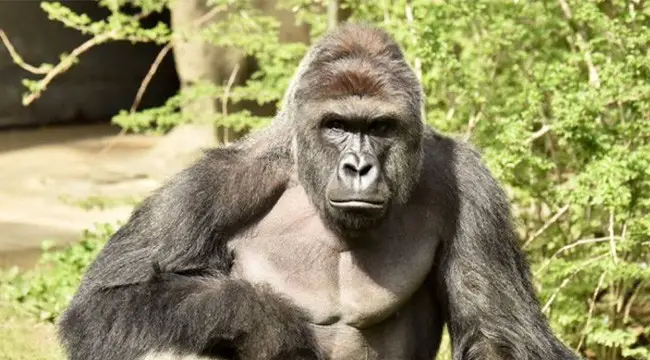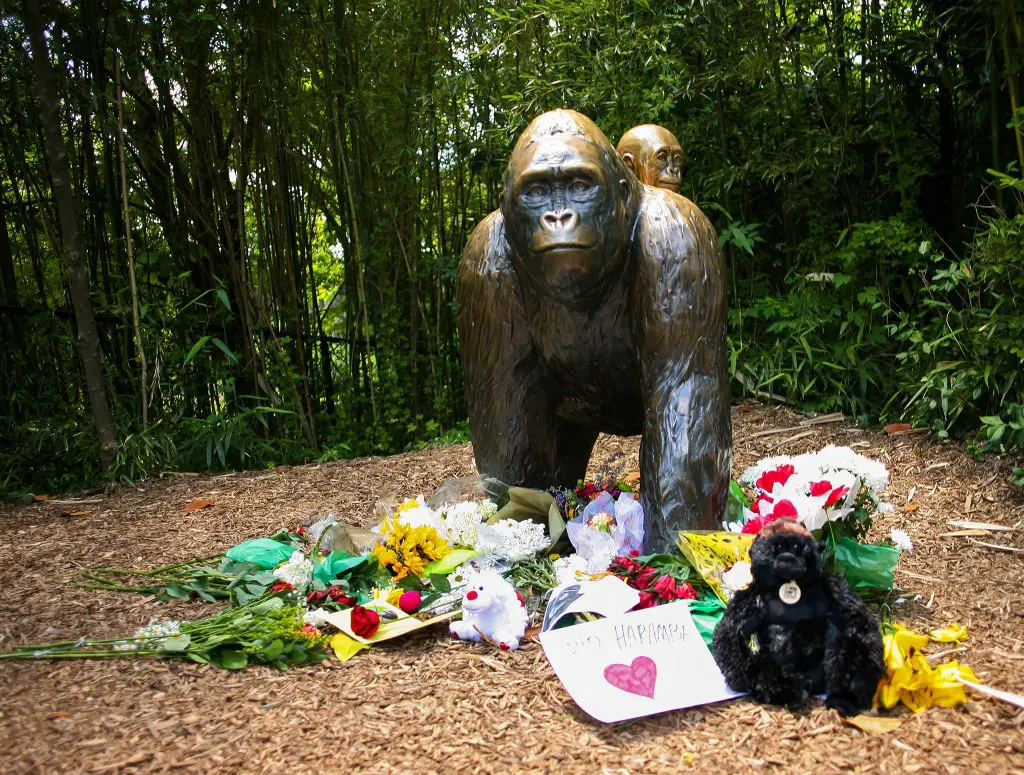Cracking the Code of Harambe’s Execution
The internet has done what the internet does best: Skew issues into oblivion. Let’s remember what we should be talking about.
By Mallory Arnold, Ohio University
Recently in my own little (ok big) hometown, Cincinnati, disaster struck when a toddler fell into the Silver-Back Gorilla exhibit and eventually resulted in the zookeepers terminating the animal for the boy’s safety.
That’s when I realized how many gorilla experts, zoo architects and child specialists I follow on social media! Imagine that.
I wanted to feel some kind of empathy for the mother, sadness for the gorilla and loyalty toward my favorite place as a kid, the zoo. But instead all I felt like doing was crawling under a rock until everyone stopped bickering.
I understand the ethical quandary of Harambe’s shooting is important to a lot of people, and yes it has to do with a child’s well being, an animal’s survival and the concept of zoos—but that’s not what people really cared about.
What people suddenly cared about was making sure their opinion was heard and accepted as the only correct opinion. Instead of joining together as a city and figuring out a way to make sure this tragedy never happened again, people started dishing out steaming piles of blame.
There were those who constantly protested the zoo, standing outside with signs and demanding that it be shut down. The protestors insisted that the gorilla’s exhibit was unsafe and that it was their fault the child fell in. Though I am a little biased, adoring the Cincinnati Zoo since I was a kid obsessed with elephants, the zoo hadn’t had a human/animal incident in 38 years.
Then there were the #JusticeforHarambe warriors. A Facebook page was set up to work together to charge the mother with Harambe’s death. The petition has accumulated a whopping 489,074 signatures and continues to grow.
Not to be ignored, there are people who believe that the zoo handled the situation poorly and as such should be punished. People all over the world have spent hours, days, weeks analyzing the amateur video taken by a horrified bystander. They’re convinced that the gorilla wasn’t doing any harm to the boy, that he was protecting him, that he was playing. Where everyone is entitled to their own opinion, right or wrong, the fact is that zoo responders had mere minutes—not hours.
And while the entire Queen City is divided in their feuds of opinions, it seems there isn’t any time to mourn the death of a beloved gorilla, or rejoice over the rescue of a little boy.
Unfortunately in situations such as these, it seems like people get involved just to be involved.
As humans it’s fun to have an opinion, to be part of an argument or part of a team and to join in on the conversation. Some people argue because they care, but a lot argue for the sake of arguing.
It’s like I’ve barely had any time to feel upset about the event itself because I’ve been dodging websites, tweets, Instagram posts and blog rants about people’s anger and blame. Harambe has been turned into a ploy for air time on the news, ratings on TV, likes and shares.
It’s important that people hold steadfast and fight for what they believe is right, but once the battles, opinions and rants become more important that the tragedy that occurred, it’s time to step back and rethink things.
I’m not here to talk about my opinion on the issue itself—I’m here to try to get people to stop arguing and stop working together peacefully to make sure a tragedy like this never happens again. That’s what this is all about, right?
Say it together, right!
Live on people, with your rants and raves. But remember when you get up to that high podium of yours, to not forget what the hell you’re actually fighting for.
Rest in peace, Harambe.










